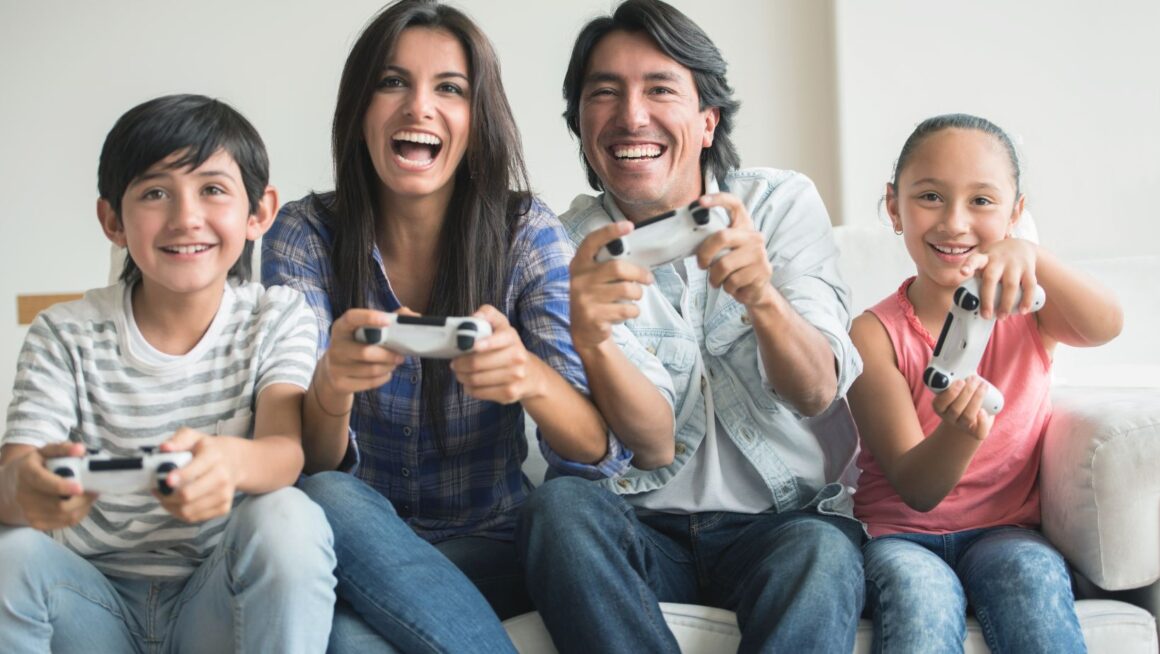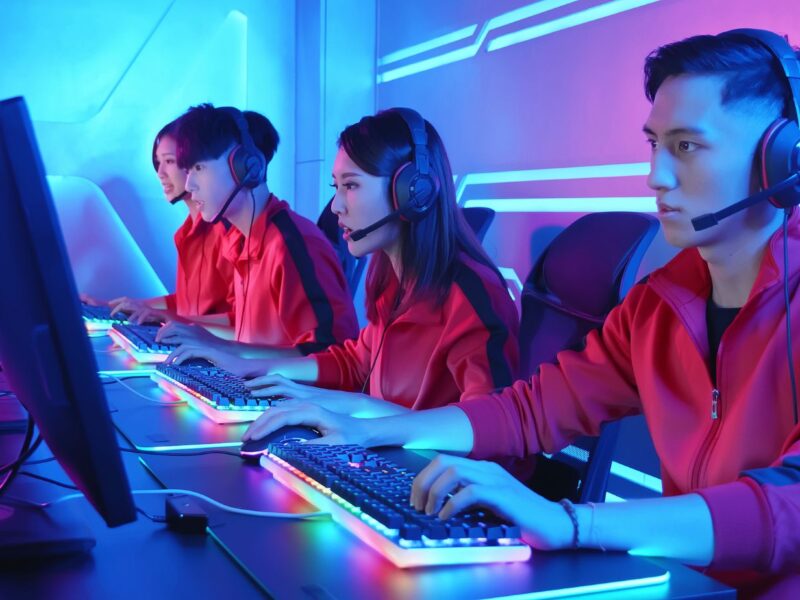Table of Contents
The Meaning Of Playing Together
Family video games represent more than a form of leisure. They can quietly resist the logic of profit that dominates modern life. When families play together, they restore something deeply human—connection, empathy, and time shared without purpose beyond joy.
Sitting on the couch, laughing, solving puzzles, and failing together isn’t trivial. These moments disrupt a culture that sells attention and isolates individuals through screens. In a game like Mario Kart or Animal Crossing, the simplicity of shared play carries its own form of protest. There are no ads during a race with your child, no productivity score hovering over your head. For a brief moment, life escapes market logic, and people rediscover what genuine connection feels like.
Cooperation Over Competition
Mainstream gaming culture celebrates rivalry. Someone must win, someone must lose. The structure reflects society itself—individual success, relentless comparison, and constant ranking. But family games quietly challenge that narrative.
Cooperative titles such as Overcooked, It Takes Two, or Lego Star Wars teach the opposite lesson. They reward collaboration, communication, and patience. Their mechanics make solidarity a condition for success. That’s more than entertainment; it’s a small political education. These games show that collective progress feels richer than personal triumph, that the pleasure of helping others surpasses the empty thrill of domination. In this sense, every cooperative match becomes a rehearsal for a different kind of world.
How Capitalism Uses Family Fun
Of course, capitalism knows how to capture even resistance. Corporations market “family fun” as a brand, not a value. Consoles, subscriptions, and digital passes transform connection into consumption. The family becomes a demographic target—measured, analyzed, and sold.
Who controls your playtime? Rarely you. Each account, update, and parental control passes through corporate systems. Data is collected, habits are tracked, and definitions of “safe” or “appropriate” are imposed. What seems like innocent family play often hides an invisible economy of surveillance and profit.
And yet, this tension reveals something important: even in spaces built for profit, people create meaning that escapes control. Every laugh shared between parent and child weakens the logic of exploitation. It’s a moment of humanity in a machine built for extraction.
Making Play A Free Space
But play can be something else. It can be freedom, not consumption. Families can use games to tell stories, share imagination, and learn empathy. Independent creators already do this. They build games that anyone can share or modify—no ads, no paywalls.
Imagine parents and children designing a small game together, like a digital version of building a treehouse. That kind of play teaches creativity and cooperation, not dependence on corporations. It’s a small but real act of cultural independence.
The Inequality Of Access
Still, not everyone can join in. Consoles are expensive. Internet costs rise. Some families don’t even have the space or time for shared play. The “family gaming” image mostly fits middle-class homes, while working-class families often can’t afford the same access.
That’s not about personal choice—it’s about inequality. True inclusion means public programs for gaming education, shared consoles in libraries, and community gaming spaces. The market won’t do this on its own. Profit depends on exclusion. That’s why public action matters.
Building Games As Public Culture

Games should be treated like books or films—part of public culture, not private property. If families could borrow consoles or access cooperative games in schools, the impact would be huge. Shared experiences could teach empathy, collaboration, and respect better than most lectures ever could.
This is what the left calls “the commons”—resources that belong to everyone. When games are treated as collective art instead of private goods, they help shape a more equal society.
The Political Side Of A Simple Login
Even a basic login tells a story about control. Take something like the TonyBet login. It seems harmless—just access to a platform. But behind it lies data tracking, marketing, and ownership of user activity. The same happens in video games. Players give up privacy for the right to play.
Families should know this. They should talk about it, question it, and find ways to protect their autonomy. Teaching kids that fun doesn’t have to mean surrendering their information is already a form of resistance.
Shared Joy As Social Change
Family gaming can become something bigger than leisure. It can teach empathy, balance, and solidarity. It can show that cooperation, not competition, builds stronger communities.
When people play together, they challenge the cold logic of profit with warmth and creativity. They prove that joy can exist outside the market. Every time a family sits down for a game night, they make a small political statement: that happiness and connection belong to everyone, not just those who can afford it.
That’s the real power of family video games—they remind us that another way of living, and playing, is still possible.




